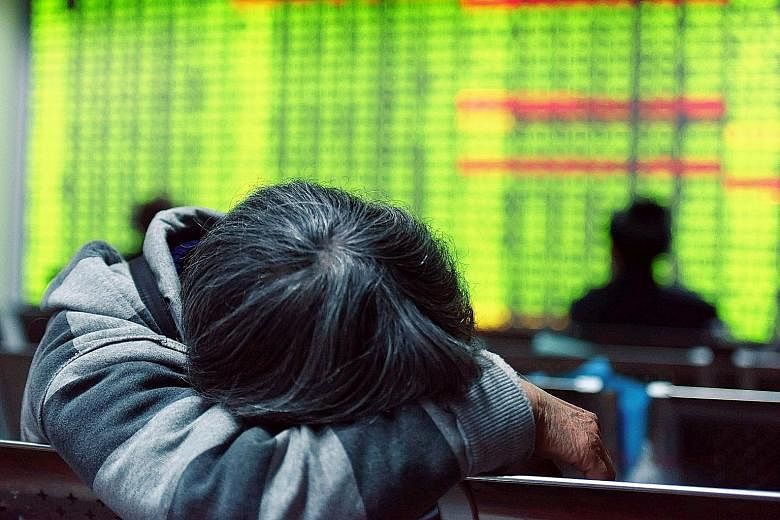The slowdown in China will hit Singapore faster and harder than any country in the region, economists from Australian bank ANZ have warned.
Other economists were not as dire in their prognoses, but agreed that the open nature of the local economy and the strong trade, investment and tourism links between the two nations mean that slower growth on the mainland will have a direct and broad-based impact on businesses and jobs here.
"Singapore's economy has been on a structural shift - getting more dependent on China - over the last 10 to 20 years," said DBS economist Irvin Seah. "It shouldn't be surprising to anyone if Singapore is very badly affected."
Unlike its Asean neighbours, Singapore does not have a big domestic market to act as a buffer against weaker demand from China, said Mr Seah.
HSBC economist Joseph Incalcaterra noted: "Even the services sector (in Singapore) has very strong linkages with China. In most countries, services are relatively insulated."
ANZ economists estimate that a 1 percentage point drop in China's economic growth will drag Singapore's economy down by a corresponding 1.4 percentage points, according to a note released by the bank last week.
But DBS and HSBC take a slightly more positive view.
DBS predicts that Singapore's growth will be dragged down by the same magnitude, while HSBC thinks it will shave roughly half a percentage point off.
"Singapore's manufacturing sector is already in recession, but domestic services are holding up relatively well," said Mr Incalcaterra. He noted that services exports, even those to China, are still growing.
OCBC economist Selena Ling agreed that Singapore will be among the hardest hit in Asia, apart from North Asian economies like Hong Kong, South Korea and Taiwan. She noted that during the global financial crisis, Singapore's growth fell 8.8 per cent year-on-year in the first quarter of 2009 when China's economic expansion slowed to 6.2 per cent compared with a year earlier.
But Ms Ling also pointed out that the forecasts assume that the Singapore Government does not step in to mitigate the impact with looser monetary or fiscal policies.
Other than slower growth, Chinese import demand is also sliding, partly because of the weak yuan, said Barclays economist Leong Wai Ho. This could have a larger-than-expected impact on China's trading partners and suppliers in Asia, which will hit Singapore factories and worsen the ongoing manufacturing recession, he added.
AP Oil chief executive Ho Chee Hon said China's slowdown is being felt more keenly in the oil industry than others. But the lubricants and speciality chemicals maker "never had so many inquiries coming out of China in one year than in 2015", added Mr Ho.
The Chinese industry players are actively looking for cheaper alternatives and this has provided AP Oil with more opportunities to sell its finished products to the Chinese market. "On the micro level, this is a chance for us to gain market share as a relatively new entrant," said Mr Ho.
However, he is more concerned with the weakening of the yuan. While AP Oil looks to sell more of its products to China, it is also actively investing there.
"On the macro level, the devaluation of the yuan is a bigger issue. In terms of our investments (in China), a cheaper yuan can make our investment dollar stronger but, at the same time, our returns are affected.
"This could be a double whammy for Singapore companies. And the hurt is there."


